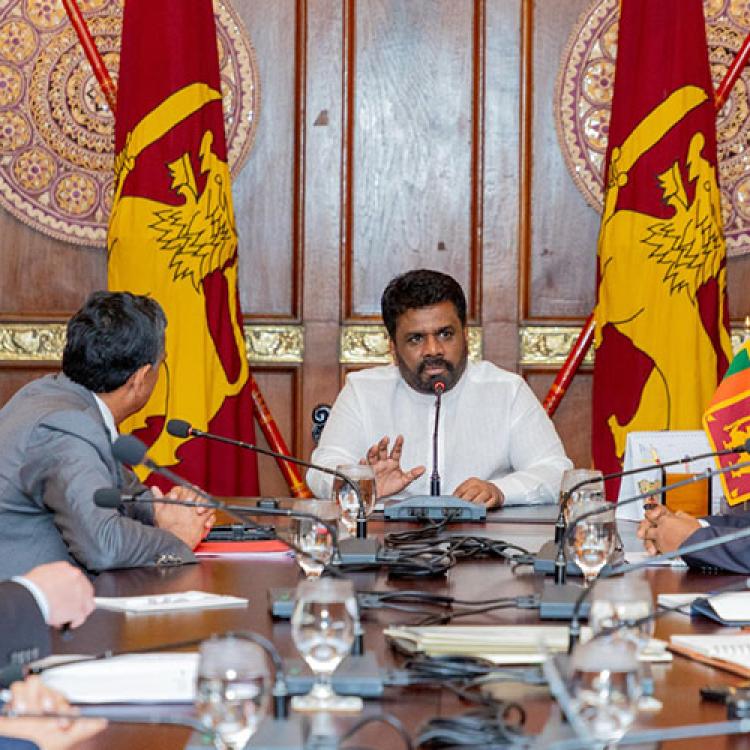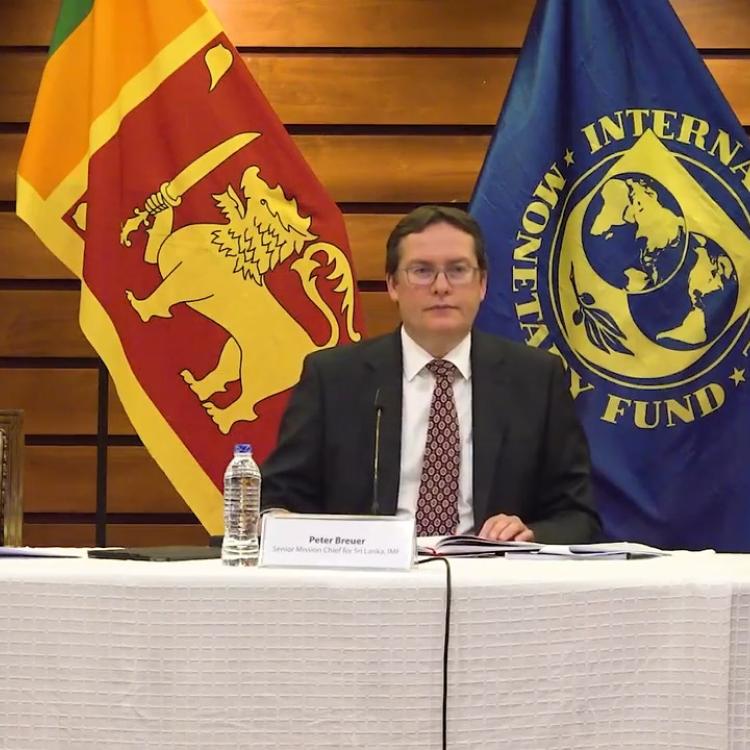![]()
The International Monetary Fund (IMF) has reiterated its warning to Sri Lanka that there is "no room for policy errors", following concerns that the government’s decision to cut electricity tariffs by 20% has breached a key structural benchmark under the IMF programme.
Despite securing a fresh IMF disbursement of US$334 million after the completion of the third review of its Extended Fund Facility (EFF) programme, the IMF has expressed reservations about Sri Lanka’s ability to meet its reform commitments and maintain fiscal discipline.
The IMF highlighted that the electricity tariff cut imposed on January 17th is expected to drive the Ceylon Electricity Board (CEB) into losses in the coming months, directly violating the cost recovery pricing requirement set under the IMF agreement. “The downward tariff revision by 20% implemented by the regulator on January 17 resulted in the structural benchmark not being met, as the CEB is expected to start making losses in the coming months,” an IMF staff assessment confirmed.
The government had previously committed to ensuring that electricity pricing remains at cost-recovery levels, meaning that tariffs should be adjusted regularly to reflect the actual costs of production. However, the unexpected tariff reduction now raises the risk of accumulating further debt within the energy sector, which could ultimately become a contingent liability for the government.
Peter Breuer, IMF’s Senior Mission Chief for Sri Lanka, emphasised that policy discipline is crucial and that any deviation from agreed reforms could derail Sri Lanka’s fragile economic recovery.
"There is no room for policy errors," he stressed, adding that sustained efforts in revenue mobilisation, tax compliance, and social spending are necessary to ensure stability.
Breuer pointed out that Sri Lanka must restore cost-recovery pricing in the energy sector without delay, as any further subsidies or tariff cuts could undermine macroeconomic stability.
Energy sector mismanagement and long-term risks
The IMF has been pushing for quarterly formula-based electricity tariff adjustments, but Sri Lanka’s failure to adhere to this mechanism has raised red flags. The government now faces two major challenges:
1. Avoiding additional losses in the CEB – If the state-owned energy utility continues to operate at a loss, it could lead to further debt accumulation and require government bailouts, putting further strain on public finances.
2. Ensuring the next budget meets IMF parameters – The IMF warned that Sri Lanka’s budget must align with programme requirements to avoid further economic instability.
Breuer made it clear that energy sector mismanagement is not just an economic issue, but a serious fiscal risk that could have wider repercussions on Sri Lanka’s debt sustainability.
"It’s important that these mechanisms be allowed to function. And then of course at the next tariff setting it’s important to ensure that tariffs will once again be set to cover the costs," he added.
The IMF’s latest review noted some incremental progress in Sri Lanka’s economy:
• GDP growth has averaged 4.3% since late 2023.
• Inflation remains subdued, and foreign reserves are gradually improving.
• Revenue collection is on an upward trajectory.
However, despite these gains, Sri Lanka remains heavily dependent on external financial assistance. The country’s economic stability appears increasingly contingent on meeting IMF-imposed conditions rather than achieving genuine self-sufficiency.
Beyond the electricity pricing issue, Sri Lanka continues to face deep-rooted structural challenges. The IMF stressed that further fiscal discipline, revenue reforms, and governance improvements are essential.
IMF Deputy Managing Director Kenji Okamura warned that while Sri Lanka has made progress, it cannot afford further economic missteps.
“Reforms in Sri Lanka are bearing fruit, and the economic recovery has been remarkable. Sustaining the reform momentum is critical to ensuring macroeconomic stability, debt sustainability, and promoting long-term inclusive growth. There is no room for policy errors.”



